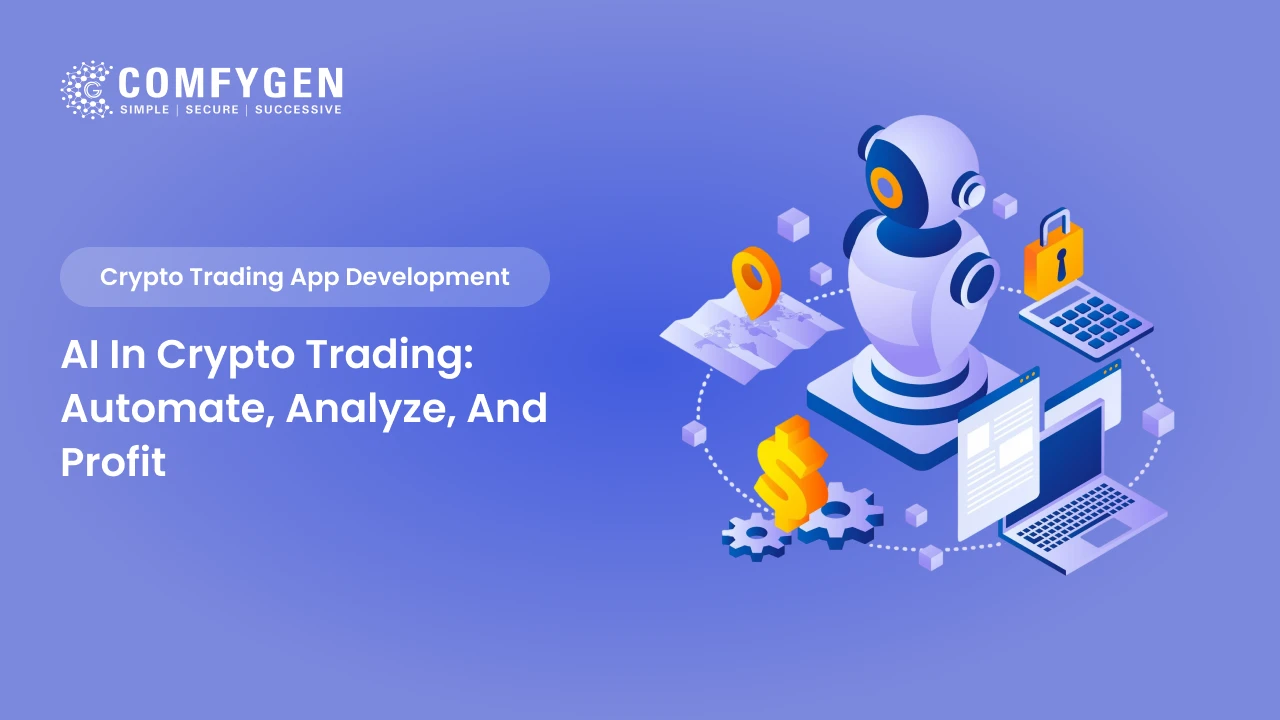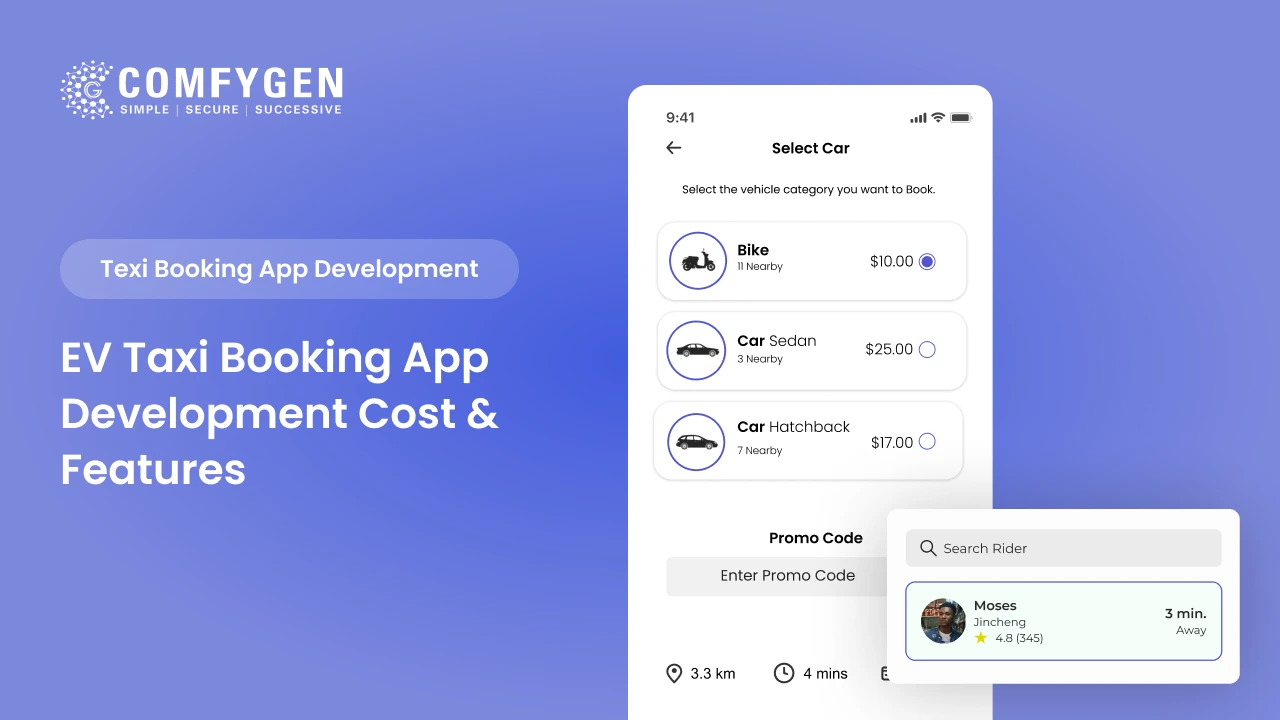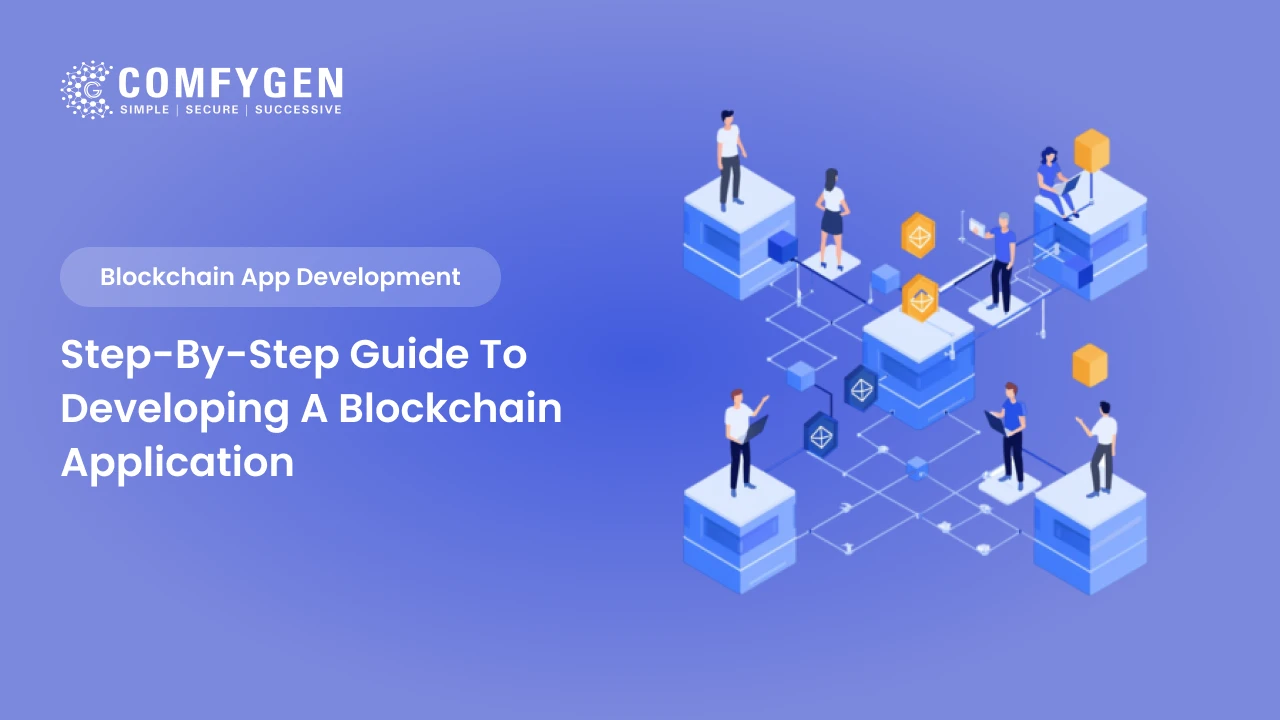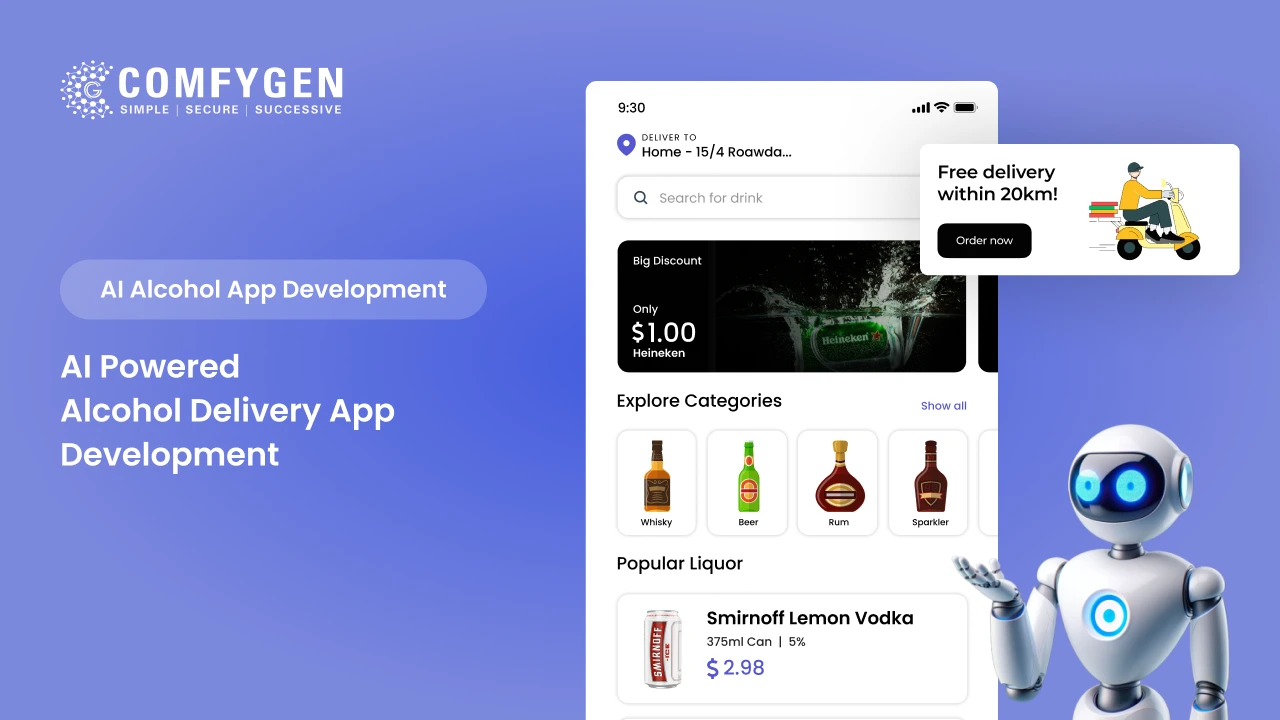AI in Crypto Trading: Automate, Analyze, and Profit
In the ever-evolving landscape of cryptocurrency, where markets operate 24/7 and volatility is constant, staying ahead of the curve is not just an advantage—it’s a necessity. Enter AI-powered crypto trading bots, the cutting-edge tools that reshape how traders, investors, and institutions engage with digital assets.
Artificial Intelligence has disrupted almost every industry it touches—and now it’s transforming how crypto trades are executed. Whether you’re a seasoned trader or a tech startup exploring fintech, AI bots can automate your strategies, analyze massive datasets, and execute precise trades in real time.
This blog dives deep into the world of AI crypto trading bots—what they are, how they work, the benefits, the development process, and the future of automated, intelligent crypto trading.
What Are AI Crypto Trading Bots?
An AI crypto trading bot is an intelligent software system that automates cryptocurrency trading by using machine learning, natural language processing, and predictive analytics to make informed decisions.
Unlike traditional bots that rely solely on pre-programmed rules, AI bots learn from market data and adapt in real-time, making them far more effective in today’s volatile market environment.
Key Capabilities of AI Bots:
- Real-time data analysis
- Sentiment analysis from news and social media
- Predictive modeling based on historical patterns
- Automated trade execution across multiple exchanges
- Continuous learning and optimization
How AI Trading Bots Work
AI bots typically follow a sophisticated workflow that includes:
- Data Collection: Pull live market feeds, order books, news articles, tweets, and blockchain data.
- Preprocessing: Cleaning and normalizing the data for machine learning input.
- Pattern Recognition: Using ML models to spot trading opportunities based on trends or anomalies.
- Signal Generation: Issuing buy/sell signals based on confidence levels.
- Execution: Placing trades on exchanges like Binance, Coinbase, or Kraken via API.
- Learning & Optimization: Updating models based on performance, enabling smarter future decisions.
AI Bots vs. Rule-Based Bots: What’s the Difference?
| Feature | Rule-Based Bots | AI Crypto Trading Bots |
|---|---|---|
| Strategy Type | Static & Manual | Dynamic & adaptive |
| Learning Ability | None | Machine learning enabled |
| Data Sources | Limited (price/volume) | Market, news, social media, blockchain |
| Flexibility | Low | High |
| Execution Speed | High | High |
| Error Handling | Rigid | Self-correcting over time |
Traditional bots are reactive. AI bots are predictive and self-improving. That difference matters—especially in crypto.
Top AI-Based Trading Strategies
AI crypto bots support a wide range of advanced trading strategies. Here are the most popular:
Trend Following
AI analyzes momentum and enters positions based on bullish or bearish trends. It can adapt dynamically as market sentiment changes.
Arbitrage
Identify price differences across exchanges and capitalize on instant profit opportunities. AI improves speed and risk detection.
Scalping
Frequent, small trades aimed at taking advantage of price gaps. AI enhances timing accuracy.
Mean Reversion
AI predicts when an asset will return to its average price after a temporary spike or drop.
Sentiment-Based Trading
NLP models analyze headlines, tweets, and Reddit forums to determine whether public sentiment is bullish or bearish.
Why Use an AI Crypto Trading Bot?
24/7 Trading Without Breaks
Crypto markets never sleep, and neither do AI bots. They execute trades in milliseconds—even while you’re offline.
Eliminate Emotional Trading
AI bots make data-driven decisions, reducing the risks associated with human emotions like fear or greed.
Multi-Market Monitoring
AI can scan dozens of exchanges and hundreds of tokens simultaneously—far beyond human capacity.
High-Speed Execution
Microsecond latency gives AI bots a speed edge that’s crucial for scalping and arbitrage.
Enhanced Risk Management
AI bots can apply dynamic stop-loss, take-profit levels, and risk allocation based on live data.
Custom Crypto Trading Bot?
Challenges and Limitations
Despite their power, AI bots aren’t without flaws:
- Data Sensitivity: Poor data can lead to bad predictions.
- Overfitting Risks: Bots trained too closely on past data may underperform in new market conditions.
- Black Swan Events: Bots can struggle during extreme market disruptions.
- Development Complexity: Building an AI trading bot requires advanced technical skills and resources.
How to Build an AI Crypto Trading Bot Step-by-Step
Step 1: Define the Objective
- Arbitrage, scalping, trend trading, or custom strategy?
Step 2: Choose Your Tech Stack
- Languages: Python, JavaScript, C++
- Libraries: TensorFlow, PyTorch, Scikit-learn, Keras
- APIs: Binance, Coinbase Pro, Kraken, KuCoin
Step 3: Collect and Clean Data
- Real-time and historical market data
- News, Reddit, Twitter sentiment
- On-chain metrics
Step 4: Build ML Models
- Supervised learning
- Reinforcement learning
- NLP for sentiment analysis
Step 5: Backtest
- Test against historical data to refine and validate performance.
Step 6: Deploy with Risk Management
- Use real funds cautiously, starting with paper trading.
Must-Have Features in an AI Trading Bot
- Real-time market scanning
- Smart order routing
- AI-enhanced portfolio rebalancing
- Customizable trading rules
- Sentiment integration
- API integrations for multi-exchange access
- Web dashboard & mobile controls
- Security Protocols
Tech Stack for AI Bot Development
| Component | Recommended Options |
|---|---|
| Language | Python, Node.js, Go |
| ML Frameworks | TensorFlow, PyTorch |
| Data Storage | PostgreSQL, MongoDB, Redis |
| Cloud Hosting | AWS, Google Cloud, Azure |
| APIs | Binance, Coinbase, Kraken, KuCoin |
| Sentiment Sources | Twitter API, Reddit API, News aggregators |
Cost to Develop a Custom AI Crypto Trading Bot
| Element | Estimated Cost (USD) |
|---|---|
| Strategy Planning | $500 – $1,000 |
| Data Collection & Cleaning | $1,000 – $2,000 |
| ML Model Development | $2,500 – $5,000 |
| Backtesting Infrastructure | $1,000 – $2,000 |
| Frontend & Dashboard | $1,000 – $3,000 |
| API Integration (Exchanges) | $500 – $1,500 |
| QA & Security Testing | $1,000 – $2,000 |
| Total | $7,500 – $16,000+ |
Partnering with a professional crypto trading bot development company can reduce risks, speed up timelines, and ensure smarter implementation.
Role of a Crypto Trading Bot Development Company
A dedicated crypto trading bot development company can:
- Analyze your unique trading needs
- Recommend the right AI model
- Create a scalable, secure architecture
- Handle deployment, maintenance, and updates
- Offer dashboards and user-friendly interfaces
Whether you’re a fintech startup or an individual investor, outsourcing bot development is a smart choice for scalability and success.
The Future of AI in Crypto Trading
As AI continues to evolve, expect to see:
- Generative AI for strategy creation
- Self-healing algorithms that correct mid-trade
- AI + Blockchain Integration for verifiable trades
- Voice-controlled trading assistants
- Emotion-detection AI to factor in trader psychology
With the rise of Web3 and DeFi, AI will not just participate in trading—it will shape the future of finance itself.
Conclusion
AI crypto trading bots are no longer just experimental tech—they’re mainstream tools for traders seeking consistent profits, risk management, and smarter decision-making. Whether you’re looking to build a bot from scratch, buy a custom solution, or consult with a crypto trading bot development company, the time to leverage AI is now.

Mr. Saddam Husen, (CTO)
Mr. Saddam Husen, CTO at Comfygen, is a renowned Blockchain expert and IT consultant with extensive experience in blockchain development, crypto wallets, DeFi, ICOs, and smart contracts. Passionate about digital transformation, he helps businesses harness blockchain technology’s potential, driving innovation and enhancing IT infrastructure for global success.
Based on Interest
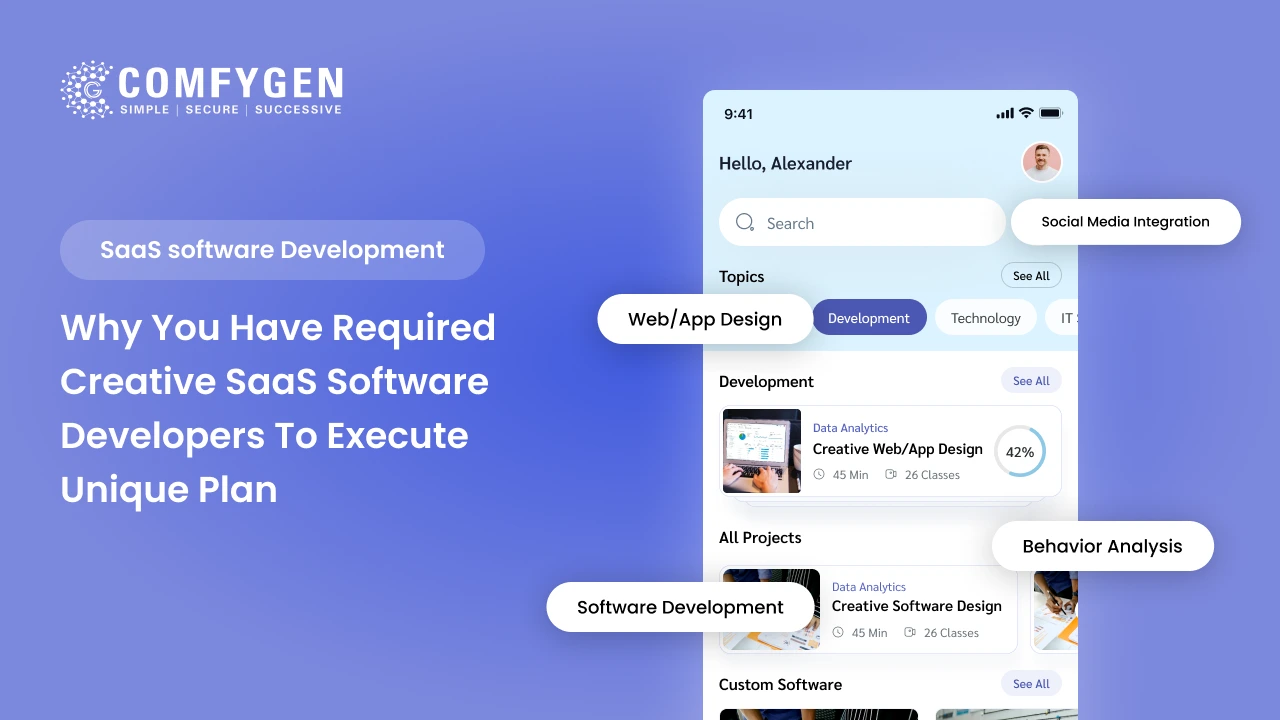
Why You Need Creative SaaS Software Developers for a Unique Project?
Businesses across industries are adapting Software-as-a-Service (SaaS) software solutions to streamline organization operations, improve customer experiences, and gain a competitive edge. However,…

